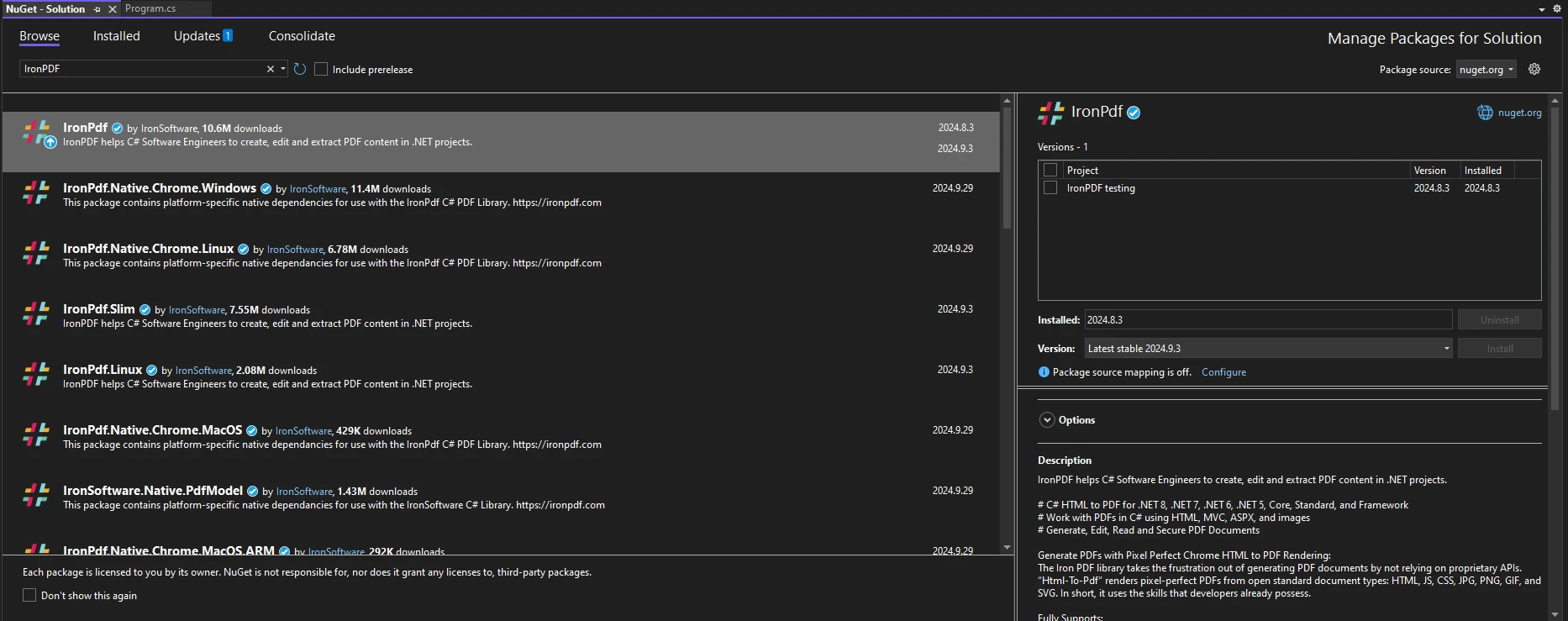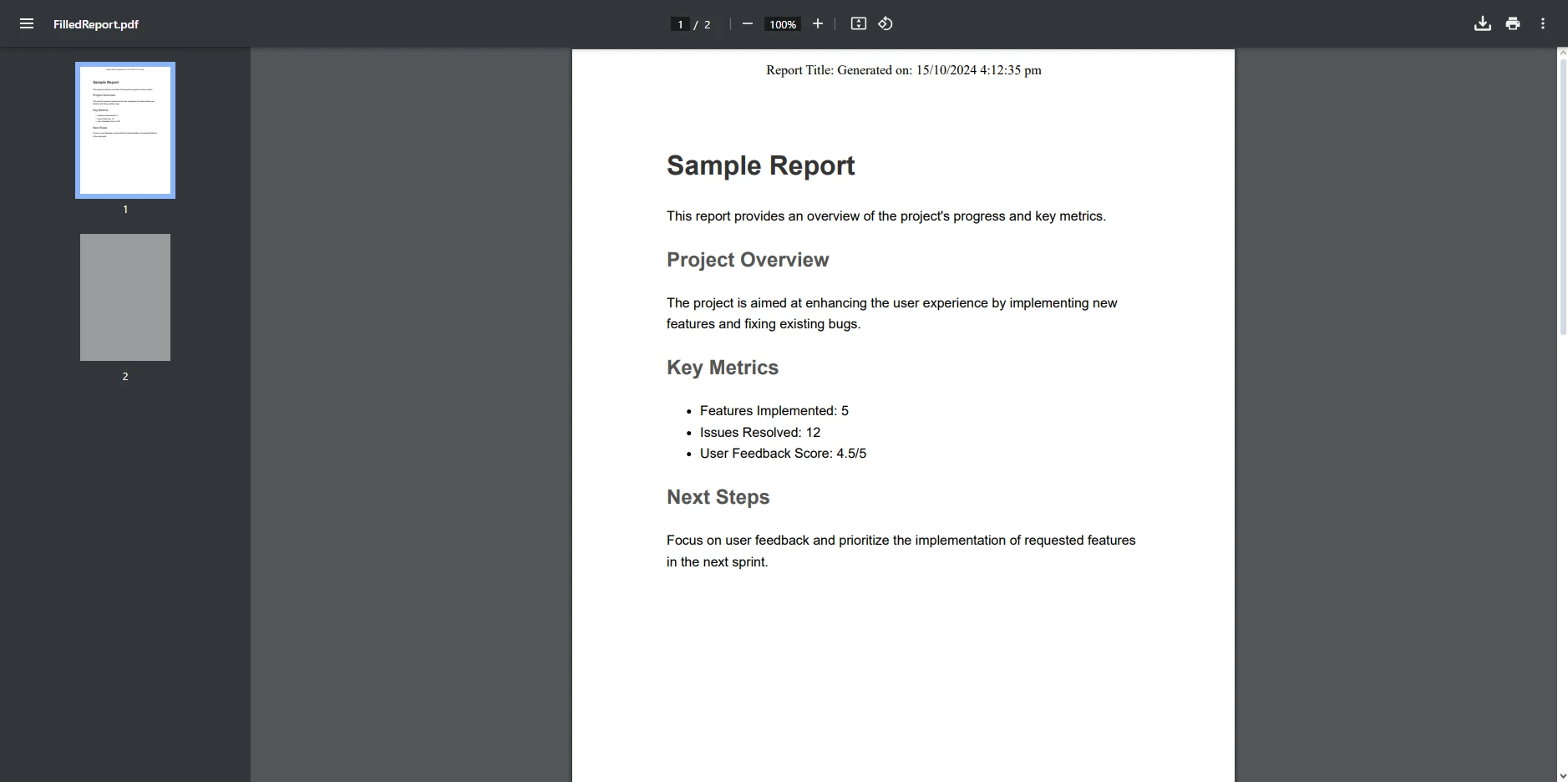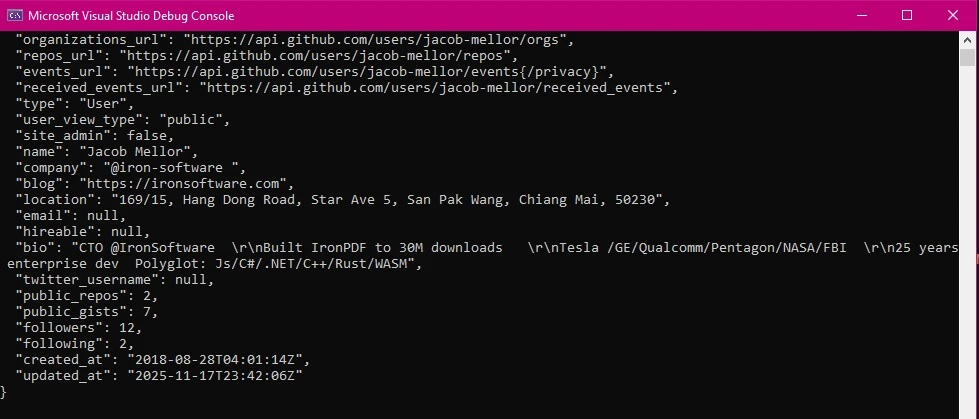C# Use of Unassigned Local Variable (Example)
C# is a powerful programming language widely used for developing applications on the .NET framework. One of the fundamental concepts in C# is variable declaration and initialization. However, developers often encounter issues with unassigned local variables—variables that are declared but not initialized before use.
This article explores the implications of unassigned local variables, particularly when working with IronPDF, a robust library for generating and manipulating PDF documents in .NET. Understanding how to manage these variables effectively can improve code reliability and performance, taking your PDF generation and manipulation tasks to the next level.
What Are Unassigned Local Variables?
Definition and Explanation
In C#, a local variable is one that is declared within a method, constructor, or block and is only accessible within that scope. An unassigned local variable refers to a variable that has been declared but has not yet been given a value. The compiler enforces a rule that requires all local variables to be initialized before they are used. If you attempt to use an unassigned variable, the compiler will throw a compiler error indicating that the variable may not have been initialized.
For example, consider the following source code snippet:
public void ExampleMethod()
{
int number; // Declared but unassigned
Console.WriteLine(number); // Error: Use of unassigned local variable 'number'
}public void ExampleMethod()
{
int number; // Declared but unassigned
Console.WriteLine(number); // Error: Use of unassigned local variable 'number'
}In this example, the variable number is declared but not initialized before its use, leading to a compilation error.
Common Scenarios
Unassigned local variables commonly occur in various scenarios, particularly when developers:
- Declare Variables Without Initialization: This often happens when a variable is intended to be assigned later but is accessed prematurely.
- Use Conditional Statements: In cases where variables are declared within conditional branches, they may remain uninitialized if the condition is not met.
Consider this example:
public void ConditionalExample(bool flag)
{
int value;
if (flag)
{
value = 10; // Only assigned if flag is true
}
Console.WriteLine(value); // Error: Use of unassigned local variable 'value'
}public void ConditionalExample(bool flag)
{
int value;
if (flag)
{
value = 10; // Only assigned if flag is true
}
Console.WriteLine(value); // Error: Use of unassigned local variable 'value'
}In the ConditionalExample method, the variable value is assigned only if flag is true, leading to a potential error if flag is false. This issue could also occur in a switch statement, where other variables may not be initialized for every case.
Definite Assignment in C#
The concept of definite assignment is essential in C#. It refers to the compiler's ability to determine whether a variable has been assigned a value before it is accessed. The C# compiler performs a flow analysis during compile time to check whether each local variable is definitely assigned. If it cannot guarantee that the variable has been assigned a value, it raises a compiler error.
For instance, if you have a variable declared within a method but accessed without prior initialization, the compiler will reject the code during compilation. This feature helps developers catch potential bugs early in the development process, thereby enhancing code reliability.
Handling Unassigned Local Variables in IronPDF
Initializing Variables
When working with IronPDF, it is crucial to perform default initialization of variables before use to ensure smooth PDF generation and manipulation. IronPDF provides various functionalities that require proper variable initialization, such as setting document properties, page settings, and content.
For instance, consider the following code snippet that initializes variables properly before using them in IronPDF:
using IronPdf;
// Initializing the PDF document
PdfDocument pdf = new PdfDocument(210, 297);
// Initializing the ChromePdfRenderer class
ChromePdfRenderer renderer = new ChromePdfRenderer();
// Initializing the content variable
string content = "<h2 style='color:red'>Confidential</h2>";
// Applying the content as a watermark to our PDF object
pdf.ApplyWatermark(content, rotation: 45, opacity: 90);
// Saving the PDF
pdf.SaveAs("output.pdf");using IronPdf;
// Initializing the PDF document
PdfDocument pdf = new PdfDocument(210, 297);
// Initializing the ChromePdfRenderer class
ChromePdfRenderer renderer = new ChromePdfRenderer();
// Initializing the content variable
string content = "<h2 style='color:red'>Confidential</h2>";
// Applying the content as a watermark to our PDF object
pdf.ApplyWatermark(content, rotation: 45, opacity: 90);
// Saving the PDF
pdf.SaveAs("output.pdf");
In this example, the pdf, renderer, and content variables are initialized before being used, preventing any potential unassigned variable errors.
Best Practices
To avoid issues with unassigned local variables, especially in the context of PDF generation with IronPDF, consider the following best practices:
- Always Initialize Variables: Ensure that every local variable is assigned a value before it is used. This practice will eliminate compiler errors and improve code stability.
- Use Default Values: If applicable, use default initialization during variable declaration. For example,
int count = 0;ensures thatcountis initialized to 0 and avoids errors. - Limit Scope: Keep variable declarations within the smallest possible scope. This practice helps reduce the chances of accessing uninitialized variables inadvertently.
- Utilize the Compiler’s Warnings: Pay attention to compiler warnings and errors regarding unassigned local variables. They provide helpful insights into potential issues in your code.
By following these best practices, you can enhance code quality and reliability when working with IronPDF and C#.
IronPDF: Simplifying PDF Generation in C#
Overview of IronPDF Features
IronPDF is a comprehensive library that simplifies PDF generation and manipulation within .NET applications. IronPDF stands out thanks to its rich feature set—including HTML to PDF conversion, seamless integration of CSS styling, and the ability to handle various PDF operations—IronPDF simplifies the often complex task of generating dynamic documents. It offers a range of features, including:
- HTML to PDF Conversion: Convert HTML content directly to PDF documents with minimal effort.
- PDF Editing: Modify existing PDFs by adding text, images, and annotations.
- PDF Rendering: Render PDFs in various formats and display them in applications seamlessly.
- Error Handling: Robust error handling features that simplify debugging and enhance reliability.
These features make IronPDF an excellent choice for developers looking to streamline PDF-related tasks in their applications. With extensive documentation and great support, it’s easy to get started using IronPDF in your projects in no time.
Installing IronPDF
To start using IronPDF, you will first need to install it. If it's already installed, you can skip to the next section. Otherwise, the following steps cover how to install the IronPDF library.
Via the NuGet Package Manager Console
To install IronPDF using the NuGet Package Manager Console, open Visual Studio and navigate to the Package Manager Console. Then run the following command:
Install-Package IronPdf
Via the NuGet Package Manager for Solution
Opening Visual Studio, go to "Tools -> NuGet Package Manager -> Manage NuGet Packages for Solution" and search for IronPDF. From here, all you need to do is select your project and click "Install," and IronPDF will be added to your project.

Once you have installed IronPDF, all you need to start using IronPDF is the correct using statement at the top of your code:
using IronPdf;using IronPdf;Practical Example
To illustrate how to handle unassigned local variables when using IronPDF, consider the following practical example that demonstrates proper initialization and usage:
using IronPdf;
using System;
public class Program
{
public static void Main(string[] args)
{
// Initialize the existing PDF document
PdfDocument pdfDocument = PdfDocument.FromFile("Report.pdf");
// Use the title from the PDF document to pass to the CreatePdfReport class
var title = pdfDocument.MetaData.Title;
CreatePdfReport(title, pdfDocument);
}
public static void CreatePdfReport(string title, PdfDocument existing)
{
// Initialize content variable
string content = $"<p>Report Title: {title}\nGenerated on: {DateTime.Now}</p>";
// Initialize ChromePdfRenderer
ChromePdfRenderer renderer = new ChromePdfRenderer();
// Set up HTML header for the PDF
renderer.RenderingOptions.HtmlHeader = new HtmlHeaderFooter()
{
MaxHeight = 15,
HtmlFragment = $"<center>{content}</center>"
};
// Create the PDF document to merge with our main file
PdfDocument newPage = renderer.RenderHtmlFileAsPdf("reportTemplate.html");
// Check if title is provided
if (string.IsNullOrEmpty(title))
{
title = "Untitled Report"; // Assign default value if unassigned
}
// Merge new PDF page with existing PDF
PdfDocument pdf = PdfDocument.Merge(newPage, existing);
// Save the PDF
pdf.SaveAs("FilledReport.pdf");
}
}using IronPdf;
using System;
public class Program
{
public static void Main(string[] args)
{
// Initialize the existing PDF document
PdfDocument pdfDocument = PdfDocument.FromFile("Report.pdf");
// Use the title from the PDF document to pass to the CreatePdfReport class
var title = pdfDocument.MetaData.Title;
CreatePdfReport(title, pdfDocument);
}
public static void CreatePdfReport(string title, PdfDocument existing)
{
// Initialize content variable
string content = $"<p>Report Title: {title}\nGenerated on: {DateTime.Now}</p>";
// Initialize ChromePdfRenderer
ChromePdfRenderer renderer = new ChromePdfRenderer();
// Set up HTML header for the PDF
renderer.RenderingOptions.HtmlHeader = new HtmlHeaderFooter()
{
MaxHeight = 15,
HtmlFragment = $"<center>{content}</center>"
};
// Create the PDF document to merge with our main file
PdfDocument newPage = renderer.RenderHtmlFileAsPdf("reportTemplate.html");
// Check if title is provided
if (string.IsNullOrEmpty(title))
{
title = "Untitled Report"; // Assign default value if unassigned
}
// Merge new PDF page with existing PDF
PdfDocument pdf = PdfDocument.Merge(newPage, existing);
// Save the PDF
pdf.SaveAs("FilledReport.pdf");
}
}
In the above code example, we have started by initializing an existing PDF document named "Report.pdf" and retrieving its title from the document's metadata.
This title is passed to the CreatePdfReport method, which is responsible for creating a new PDF report. Inside this method, a string variable called content is initialized to include the report title and the current date. The ChromePdfRenderer class is used to render an HTML template called "reportTemplate.html" and set up a header for the PDF that displays the report title and date. If the title is not provided, a default value of "Untitled Report" is assigned.
The newly rendered PDF document is then merged with the existing PDF document, and the combined result is saved as "FilledReport.pdf." This process illustrates how to create dynamic PDF content and merge it with existing documents using IronPDF.
Alternatively, the code could be changed to accept user input as a parameter for the title. If the title is not provided, it could assign a default value to ensure that the variable is initialized before use.
Conclusion
Understanding unassigned local variables is crucial for writing reliable C# code, particularly when working with libraries like IronPDF. Unassigned variables can lead to compilation errors and runtime exceptions, which can be frustrating and time-consuming to troubleshoot. By ensuring that all local variables are properly initialized before use, developers can significantly reduce the risk of these common pitfalls, ultimately leading to cleaner, more maintainable code.
IronPDF offers a robust solution for PDF generation and manipulation, making it an ideal choice for .NET developers. Its user-friendly interface and extensive features enable developers to create high-quality PDF documents quickly and efficiently. Whether you’re converting HTML to PDF, editing existing documents, or rendering content, IronPDF simplifies the process, allowing you to focus on building your applications rather than dealing with low-level PDF complexities.
Check out IronPDF's free trial to start using this powerful library to improve the efficiency of your PDF projects today! IronPDF is a powerful tool to have at your fingertips, and if you want to see more of this library's features in action, be sure to check out its extensive how-to guides and code examples.
Frequently Asked Questions
What are unassigned local variables in C#?
In C#, unassigned local variables are those that have been declared but not initialized before use. The compiler requires all local variables to be initialized before they are accessed to prevent errors.
How does C# handle unassigned local variables?
C# uses a concept called definite assignment, where the compiler performs flow analysis to ensure all variables are initialized before use. If a variable is not definitely assigned, the compiler will generate an error.
Why is it important to initialize variables when working with PDF libraries?
When using PDF libraries like IronPDF, initializing variables is crucial to ensure smooth PDF generation and manipulation. Proper variable initialization prevents errors and enhances the reliability of the code.
What are some common scenarios where unassigned local variables occur?
Unassigned local variables often occur when variables are declared without initialization, especially within conditional statements or branches where they may not be initialized if certain conditions aren't met.
What best practices should be followed to avoid issues with unassigned local variables?
To avoid issues, always initialize variables, use default values during declaration, limit the scope of variable declarations, and pay attention to compiler warnings and errors.
How can PDF generation be simplified in C#?
PDF generation can be simplified using libraries like IronPDF, which offer features like HTML to PDF conversion, PDF editing, and robust error handling, integrating easily with .NET applications.
How can you install a PDF library in a .NET project?
A PDF library like IronPDF can be installed via the NuGet Package Manager Console with the command Install-Package IronPdf or through the NuGet Package Manager for Solution in Visual Studio.
What is the role of rendering classes in PDF libraries?
Rendering classes, such as ChromePdfRenderer in IronPDF, are used to render HTML content to PDF, allowing for customization of headers, footers, and handling various rendering options.
What happens if you attempt to use an unassigned local variable in C#?
If you attempt to use an unassigned local variable in C#, the compiler will throw an error, as it cannot guarantee the variable has been initialized, preventing potential runtime exceptions.
Can you provide a practical example of handling unassigned local variables with a PDF library?
A practical example involves initializing a PdfDocument, setting up variables, and using rendering classes like ChromePdfRenderer to generate dynamic content and merge it with existing PDFs, ensuring all variables are initialized.
How does definite assignment help in C# programming?
Definite assignment in C# ensures that all variables are initialized before they are used, which eliminates potential runtime errors and leads to more reliable and bug-free code.
How can IronPDF enhance PDF operations in C#?
IronPDF enhances PDF operations in C# by providing functionalities like HTML to PDF conversion, PDF editing, and compatibility with .NET applications, making it easier for developers to manage PDFs efficiently.





















